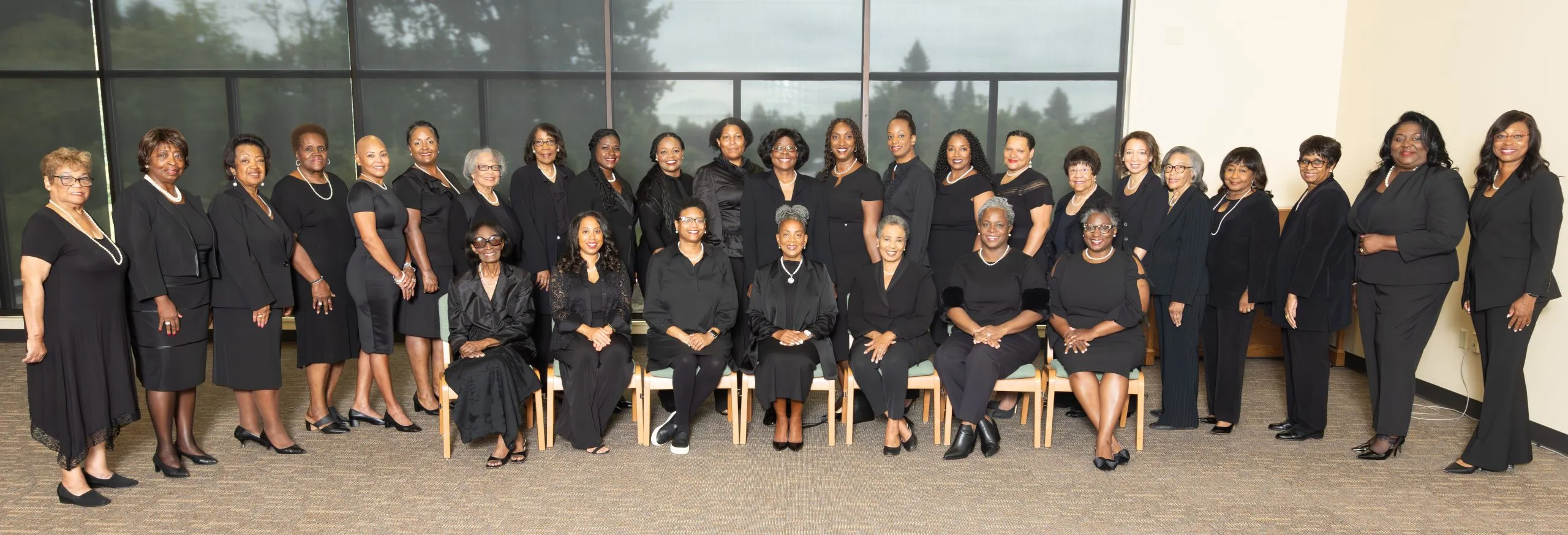Portland, August 27th, 2013. The Oregon Area Jewish Committee’s (OAJC) Board of Directors is delighted to announce that Joanne Van Ness Menashe has been named OAJC Executive Director with an effective date of Sept. 3, 2013.
Joanne brings an outstanding history of community leadership and is an effective advocate for causes that positively impact people’s lives with two decades of successfully bringing together multiple facets of the community.
OAJC Policy Statements:
DOMESTIC CONCERNS
Combating Anti-Semitism and Extremism
The protection of Jewish rights and the protection of all minorities from extremist and anti-Semitic attack is part of OAJC’s mission. We remain vigilant against these threats. OAJC regularly monitors trends in attitudes toward Jews and other minorities.
OAJC supports legislation mandating severe penalties for hate crimes and the collection of reliable statistics about the incidence of such outrages.
Religious Freedom and Church-State Separation
The First Amendment guarantees both the freedom to practice one’s religion – or not to practice a religion – without interference from the state. The separation of church and state is crucial to the freedom and security of Jews and all other Americans. Assertions that the United States is a Christian country marginalize those of other or no religion, and undermine the First Amendment.
OAJC supports government funding of secular social service programs operated by religiously affiliated organizations, where effective church-state separation safeguards are in place.
Religion in Public Schools
OAJC believes that no public school should sanction or sponsor prayer or other religious activities.
While opposed to religious proselytization in the public schools on both constitutional and public-policy grounds, OAJC believes that qualified teachers may teach about religion objectively, and instruct their students about the important role that religion has played in advancing civilization.
Public Education
OAJC believes that there must be a re-prioritization of resources for public education on the national, state, community, and family levels, so that the public schools can fulfill their promise as democratic institutions and launching pads of opportunity for all children.
Schools and communities must provide all students, including minority, immigrant, and economically disadvantaged children, with effective schooling, extra educational help, and support systems necessary to meet the educational standards demanded by today’s society. OAJC believes that for all students to succeed the following are needed:
– equitable school financing
– qualified teachers
– effective school and school district leadership
– parental involvement
– afterschool programming
– early learning programming
– a secure and positive educational environment
OAJC views tuition tax credits and vouchers for sectarian elementary and secondary schools as a violation of church-state separation and a danger to the public school system.
OAJC opposes voucher proposals that would divert public money to private schools, whether parochial or secular.
Intergroup Relations
OAJC believes that just as there is no “American” religion, so there is no “American” ethnicity or “American” race: Americans are united by a common adherence to the principles of our democratic system. Indeed, democracy is strengthened, not weakened, when individuals of similar religious, racial, or ethnic background associate together to promote their spiritual, political, social, or cultural interests, so long as such groups respect the rights of other groups to do the same. Moreover, each group may find that it can further its interests through cooperation and coalition with others.
The extensive intergroup and interreligious coalitions and programs sponsored by OAJC reflect its commitment to the pluralistic ideal. OAJC maintains ongoing dialogue with Catholic, liberal Protestant, and LDS, as well as with Muslim, Buddhist, and Hindu groups.
We also engage in frequent conferences and joint projects with Latinos, African American, Asian American, and other racial and ethnic communities. Taking into account the rapidly changing demographics of America, we seek opportunities to build alliances and coalitions with such groups for joint advocacy on issues of shared concern.
Equal Rights
OAJC is unalterably opposed to discrimination based on race, religion, ethnic group, gender, marital status, or sexual orientation, whether in employment, education, housing, or public accommodations.
Affirmative Action
OAJC supports flexible goals and timetables and, where there has been a demonstrated pattern of discrimination, we support selectively applied preferences. Affirmative action should not mean hiring, promoting, or admitting unqualified persons.
OAJC supports a thoughtful and well-balanced affirmative action policy as an important tool in achieving a society free of racism and sexism, where every individual may realize his or her potential to the fullest based on merit.
National Security and Civil Liberties
OAJC has a long tradition of civil rights advocacy balanced with an unwavering commitment to national security. We urge our local, state, and national law enforcement agencies to respect the delicate balance between the measures necessary to strengthen law enforcement’s ability to combat terrorism and our constitutional protections.
Energy Independence
OAJC supports as a primary national goal, a comprehensive policy to substantially reduce U.S. dependence on oil. American dependence on foreign oil sources makes the country susceptible to pressure from oil-producing nations and affects our economic well-being. We support an overall effort to move away from an oil-based economy, including efficiency and conservation, stringent environmental safeguards, and investment in sustainable sources of energy and transportation.
Climate Change
Climate change has the potential to disrupt our way of life, irreversibly harm the natural environment, create ongoing humanitarian crises, and undermine our efforts to keep ourselves safe and secure. OAJC recommends prompt action, including education and advocacy, directed at mitigating and adapting to climate change by reducing emissions.
Immigration
Because “we were once strangers in the land of Egypt” American Jews have consistently maintained a deep interest in United States immigration and refugee policy. OAJC supports a fair and generous comprehensive federal immigration policy, including the following:
an increase in the flow of legal immigrants
increased “family unification” immigration
efforts to reduce the flow of illegal immigration within the context of established civil liberties protections
generous immigration policies regarding refugees who are fleeing persecution
programs designed to educate and integrate new citizens
OAJC opposes the denial of government benefits to non-citizen legal immigrants.
Poverty
OAJC affirms its commitment to a multi-pronged approach to combating poverty and its ill effects, including:
1. Protecting the most vulnerable. Jewish tradition requires us to care for the vulnerable in our communities and to ensure that their basic needs are met. It is the responsibility of government to ensure that the most basic needs of society’s neediest members for food, clothing, housing, safety, and health care are met. OAJC supports policies that both foster independence and protect families from destitution and hardship. OAJC supports efforts to assure the financial health of Social Security, Medicare and Medicaid.
2. Supporting struggling families. OAJC supports policies that ensure that working families can afford rent and/or achieve home ownership and have access to education and training. This includes – but is not limited to – a meaningful minimum wage, quality child and elder care, wage supplements through the Earned Income Tax Credit, SNAP (formerly food stamps), job creation policies, health care and health insurance for low-wage workers and their families, and appropriate housing policies.
OAJC calls for government to make the reduction of poverty a priority and to commit significant resources to identify the causes of poverty in the United States and to root it out wherever it persists.
Reproductive Rights
OAJC supports a woman’s right to choose.
Marriage Equality
OAJC believes that an adult has the right to marry the individual of his or her choice.
INTERNATIONAL CONCERNS
Israel
OAJC believes that the United States should remain committed to Israel’s security, well-being, rightful place in the community of nations, and its character as a Jewish state. OAJC urges the United States continue to recognize the unbreakable bond between the United States and Israel.
OAJC supports a two-state solution to the Israeli-Palestinian conflict: a Jewish State of Israel existing in peace and security beside a Palestinian Arab state established through direct negotiations requiring compromise by both parties.
To assure the success of negotiations, OAJC believes that Palestinians must take decisive action against terrorism and violence. OAJC believes that Israel must commit to help create the conditions for a viable Palestinian state.
OAJC believes Israel should recognize that expansion of the territorial footprint of Israeli settlements poses a challenge to reaching an agreement with the Palestinians. Israel should take timely and meaningful action to address this issue, in order to move the peace process forward.
OAJC also believes that, while settlements, borders and other final status issues will be critical subjects of negotiation, the end of the Israeli-Palestinian conflict, and the realization of full Arab-Israeli peace, lies ultimately in the recognition by the entire Arab world of Israel’s fundamental legitimacy and right to exist in the region as a Jewish state.
Jerusalem
Jerusalem is the capital of the State of Israel, and should be formally recognized as such. As soon as a peace settlement between Israel and the Palestinians is finalized, we urge the United States to move its embassy to Jerusalem, thus removing the anomaly that the American embassy in Israel is the only one in the world not situated in the host nation’s designated capital.
Human Rights
With a universal concern, OAJC calls attention to human rights issues of core importance to the Jewish community, i.e., religious intolerance, combating discrimination whether based on race, religion, national origin, gender, or sexual identity. OAJC believes that de-humanization and indifference to discrimination and intolerance can lead to genocide. OAJC believes that human rights violations should be condemned impartially and throughout the world. The protection of human rights is a responsibility of the international community and should be a central factor in U.S. foreign policy, U.S. domestic policy, and the policy of our state(s) and cities.
















